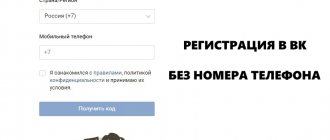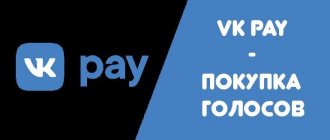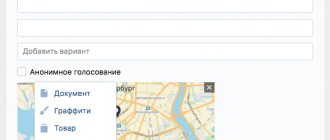The emergence of the social network VKontakte, like other successful projects, began with an interesting idea, which the founders managed to translate into reality. While some of them lost their popularity over time or even failed, VK still occupies a leading position today.
According to SimilarWeb statistics, as of January 2021, the social media site vk.com is the second most popular among users in Russia. Who do you think is in the lead? Of course, yandex.ru. Although in the Alexa ranking the top places look a little different: vk.com ranks third - youtube.com and yandex.ru turned out to be more popular among Runet users.
How did a meeting between two classmates grow into a successful IT project?
Everyone knows that the main creator of VKontakte is Pavel Durov, a bright personality and a talented programmer. Even during his student years, he actively developed, for example, he created the forum of St. Petersburg State University.
By chance, his classmate Vyacheslav Mirilashvili, with whom they lost contact 7 years ago, found out about this. While studying at an American university, Vyacheslav noticed how quickly social networks were popularizing. With this idea, he “came” to Durov, sending a fateful letter to his email. Soon they were discussing the promising idea of finding classmates and fellow students via the Internet.
By the time VKontakte was developed, Durov had almost everything - knowledge and experience in programming, an understanding of the target audience and a base of loyal student forum participants, but no money. This issue was resolved by Mirilashvili.
Childhood and teenage years of Pavel Durov
Durov began going to school in Turin, Italy, where his father worked for several years. Returning to St. Petersburg, he studied at a regular school, but not for long - he too often explained to the teachers that they were incompetent. But a whole group of people like Durov was recruited into the experimental classes of the Academic Gymnasium.
Due to vision problems, he sat at the first desk, often alone, received high grades and was considered erudite - but he was overshadowed by the stars of the class, the winners of the Olympiads. Older brother Nikolai, a talented scientist, also won competitions in mathematics and computer science.
Durov learned to program and first changed the screensaver of all school computers from the Windows 95 logo to a photo of a computer science teacher with the caption “Must die.” The teacher denied him access to computers several times, but Durov broke the passwords each time. “You always had to communicate with him warily; it was unclear whether he was speaking sincerely or mocking you,” recalls his classmate Alexey Dievsky.
Since then, Pavel has constantly improved his knowledge and skills in the field of programming. After the graduation party, Durov was asked where he sees himself in the future. He joked: “An Internet totem.”
After graduating from high school, Pavel entered the philological faculty of St. Petersburg State University, from which he graduated in 2006. As a student, Durov did not go with the flow, like most students, but used it, actively developing and improving.
Even before the appearance of his brainchild “VKontakte”, Pavel created several predecessor projects that helped him later create the best of the best. We are talking about student projects, the first of which was durov.com. The site had no commercial benefit, but helped unite students studying in different areas of the city, giving them a platform to exchange ideas and opinions.
Leaving Durov.com to exist in a free mode, he opened a university forum (spbgu.ru) and began to promote it. Having divided the portal into faculties' platforms, he initiated verbal battles, often argued with himself under different nicknames, and organized design and beauty competitions offline.
Soon, Durov applied for a Vladimir Potanin scholarship and participated in a role-playing game, during which those with leadership qualities were selected from among the excellent students. “Pavel spoke quietly, but for some reason everyone fell silent and began to listen,” recalls Yuri Lifshits, a winner of international mathematical Olympiads who later worked at Yahoo. “Everyone there was bright, but even in simple situations, for example, when choosing a meeting place for the Potaninites, his opinion was one of the decisive ones.” Durov received a scholarship for three years in a row.
Meanwhile, 3,000 people a day were already visiting the forum, and the resource was acquiring social functions. Users blogged and rated each other up or down. Durov was cautious about monetization, not allowing the appearance of banners not related to education. By his last year, he firmly knew that he wanted to do his own projects, and not translate from English (as was stated in his diploma).
“When I looked at people who go to offices every day for routine work, I could not imagine such a scenario in my life,” Pavel Durov said in an interview with Forbes. “Managing Internet projects and organizing university events taught me independence and the idea that I have no direct superiors.” By the way, Durov never took his diploma, not wanting to deal with the bureaucracy once again.
Birthday of social media VKontakte
The website vkontakte.ru was registered on October 1, 2006, but it is believed that the launch date of the social network coincides with the birthday of its creator - October 10 of the same year, when VKontakte acquired its first functionality.
Have you already guessed where the first users of the social network came from? Of course, from the university forum, in which Durov continued to remain an administrator. At first, students registered by invitation, indicating their real name and surname. After about a month, free registration appeared, and the number of users gradually increased.
Pavel Durov – creator of VKontakte
Creation of VKontakte
Among other ideas, Pavel Durov was thinking about a social network where people appear under real names. And at that moment, a letter from a person with whom he lost contact seven years ago fell into his mailbox.
Vyacheslav Mirilashvili read an article in “Business Petersburg” and could not believe his eyes - his classmate Durov was praised as the creator of the St. Petersburg State University forum. At that time, Vyacheslav was studying at the American Tufts University and saw how social networks were gaining popularity. Mirilashvili found Durov’s address, and soon the friends were discussing the prospects of a social network for students. “The idea of finding classmates and fellow students seemed relevant to Vyacheslav and me personally,” recalls Durov. “After all, we might never meet again.”
Had they started a little later, their chances of success would have been significantly lower. In the spring of 2006, the number of users on Russian-language social networks grew rapidly, but still amounted to thousands of people. Even the largest one, Odnoklassniki, did not reach a million users.
Vyacheslav did not have his own money to launch a social network. He borrowed them from one of his father’s companies, Mikhail Mirilashvili, the owner of the Konti group (the largest St. Petersburg casinos) and the PetroMir group (shopping and entertainment centers). Mirilashvili Sr. was one of the most famous St. Petersburg businessmen of the 1990s; many called him a good friend of Vladimir Putin. In 2001, Mikhail Mirilashvili was arrested on charges of kidnapping the people who kidnapped his father, and at the time Pavel and Vyacheslav needed money, he was serving time.
Friends founded a company in which Mirilashvili Jr. remained in control, and his friend Lev Leviev and Durov were minority shareholders. However, the latter retained for himself a block of voting shares sufficient to cancel objectionable decisions. The fact that the brand could be associated with the name of Mirilashvili Sr. did not bother Durov.
On October 1, 2006, VKontakte LLC registered the domain vkontakte.ru, and from that day began the official history of the development of today's most popular social network in the Russian Federation and the CIS countries.
Pavel Durov had everything he needed in his hands - an understanding of the audience, a base of loyal forum visitors, programming experience, perseverance and perseverance. He started adapting the Facebook idea and adding his own features. Like Mark Zuckerberg, Durov wanted to attract more users and provide them with convenient services, but did not yet worry about monetization.
At first, the project was closed, and it was possible to join only by invitation. Registration was allowed only by first and last name. “Please register on this site! You will help me a lot!” - students of the capital's universities begged each other.
In just a few days in November, the unknown VKontakte network attracted more than 2,000 users. The reason is a competition invented by Pavel Durov. The person who invited the most friends was given an iPod.
Three months later, free registration was introduced, and the ever-increasing number of participants in the social network forced the organizers to switch to more powerful servers and constantly improve software support for the network.
Foundation of VKontakte LLC and first successes
VKontakte LLC was founded at the beginning of 2007. As expected, Vyacheslav Mirilashvili became the owner of 60% of the shares. The rest were divided between Pavel Durov - 20%, Mikhail Mirilashvili and Lev Leviev - 10% each. Pavel’s brother, Nikolai Durov, becomes the technical director.
In its first years of development, VKontakte immediately competed with the then popular social media Odnoklassniki, and in 2008 it confidently overtook it, taking the position of the most popular resource on the Runet (according to Alexa). Meanwhile, new functionality appears on VKontakte - the ability to leave anonymous opinions, draw graffiti on users’ walls, audio and video recordings, and applications.
Transition to business monetization
The project required significant investments in the development and purchase of new servers, so commercial functions appeared on VKontakte: increasing the rating using paid SMS, as well as the “Gifts” application with the purchase of pictures that can be sent to other users.
But this was not enough. Contrary to its initial position, in the summer of 2008 the company entered into a contract under which advertising banners would appear on social media. The audience size exceeds 20 million users, and at the end of 2008, the company's net profit is $4.5 million.
Further development of VKontakte
The main goal was to create a high-quality product that allows you to freely communicate with friends, regardless of location, i.e. always “be in contact.” But in addition to the ability to search for friends and make appointments with them, people were also attracted to the idea of freely downloading music and videos.
Durov managed to collect a complete database of faculties of Russian universities and provide a search by year of graduation. And as a result, in the first year the VKontakte network received 3 million users. Due to the sharp increase in the number of users, server overload became a headache (it was a matter of life and death - constant freezing provoked an outflow of users from Friendster, the second largest social network in the world at that time).
In addition, the number of DDos attacks on the site has increased, which forced us to develop and strengthen the protection of the social network. Durov was lucky - his brother Nikolai, who was working on his doctorate at the Max Planck Institute of Mathematics, managed to find time to optimize the load on the servers and work on site security.
However, the main problem was that VKontakte needed millions and millions of dollars to purchase new servers, support them and hire employees. The shareholders did not have their own funds and did not want to borrow any more, but meanwhile they received offers from Moscow investors to sell the business. “The temptation to sell everything for crazy money is quite great,” comments the creator of Odnoklassniki, Albert Popkov. “It’s a matter of faith, how far it will go.”
Durova's faith was strong. Soon the DST Foundation (now Mail.ru Group) came knocking on VKontakte. “Our project was fundamentally different from other startups, as it grew exponentially, without advertising,” recalls Durov. — Yuri Milner offered more than others and asked for less. At the same time, he himself took the initiative and came to us.”
The founder of the DST fund, partner of the oligarch Alisher Usmanov and the most famous Russian Internet investor, Yuri Milner, is known for his ability to please the owner of a promising business idea. Another characteristic of this venture capitalist is his non-interference in the affairs of the company in which he has invested (as long as things are going well).
“Milner admired Durov all the time, said that he was a genius and so on,” notes a former top manager of the company in which DST invested. “It was then that Zuckerberg became his favorite, and then Durov reigned.” One way or another, the parties bargained, and DST bought 24.99% of VKontakte for $16.3 million.
It gradually became clear that it was impossible to increase spending on growing video and photo hosting sites and at the same time delay the start of generating income. Durov had to compromise. VKontakte still refrained from advertising, but allowed increasing personal ratings using paid SMS. Later they began to sell virtual currency for real rubles. The “Gifts” service was also introduced to the public - pay and send a virtual postcard or item to a friend.
But the revenue of several million dollars did not cover the costs of the site, and in the summer of 2008 Durov signed the first advertising contract. Advertising appeared on the social network for the first time (the first banners were posted on the left and bottom of the page). A platform for gaming applications was also developed, allowing developers of these same applications to earn money for a certain percentage. Thus, we can conclude that the monetization of the project began precisely in 2008, when the number of VKontakte participants exceeded 20 million.
In 2011, the site underwent significant visual and functional changes. According to the latest news from Pavel, the engine code was completely rewritten, and various conveniences and usefulness were introduced: for example, pop-up message windows, convenient viewing of photos, the ability to add videos from well-known video hosting sites. All this once again proves the professionalism and concern of the development team for the project.
VKontakte plans to popularize abroad
In 2009, Lev Leviev (executive director) plans to develop abroad, so social media buys the domain name vk.com. According to management plans, the vk.com website should be launched in 12 languages in the fall of 2009.
In the same year, the social network opened an API for developers. As a result, the company receives a new format of income. For example, the developers managed to get $20 million from the game “Happy Farmer,” with half of the amount going into the pocket of the social network. At the end of 2009, VKontakte's net profit amounted to $11.6 million.
short biography
- Full name: Pavel Valerievich Durov;
- birthday: October 10, 1984;
- place of birth - St. Petersburg, Russia;
- parents - father Valery Semenovich Durov, mother Albina Aleksandrovna Durova;
- citizenship - Russia, Saint Kitts and Nevis;
- education - Faculty of Philology, St. Petersburg State University;
- religion - libertarianism,
- marital status: Not maried;
- profession - entrepreneur;
- height, weight - 176 cm, 75 kg.
Instagram - https://www.instagram.com/durov/ Twitter - https://twitter.com/durov VK - https://vk.com/id1 Facebook - https://www.facebook.com/durovTelegram
Interesting facts:
- Pavel Durov is a vegetarian;
- adheres to libertarianism;
- claims that he does not fall in love because love is a drug;
- has the rank of reserve lieutenant;
- He names Che Guevara and Steve Jobs as sources of inspiration.
VKontakte audience 70 million users
VKontakte receives the status of the largest social network on the Russian Internet. According to TNS statistics, in the summer of 2010, the monthly number of users of the social network was 19.6 million. By the fall of the same year, the number of registered users already exceeded 70 million.
The social network provides free access to the mobile portal 0.vkontakte.ru, the purpose of which is to quickly load web pages via the mobile Internet. In essence, it was a lightweight website format for mobile phones - m.vkontakte.ru.
By this time, 32.55% of VKontakte belonged to Mail.Ru Group, which provided a report for 2010. It again showed significant growth: VKontakte’s revenue amounted to $93.8 million, and EBIDTA was $28.4 million.
Confrontation between Mail.Ru Group and Durov
In the summer of 2011, Mail.Ru Group increases its share in social media by another 7.44%, reaching 39.99%. It is clear that the holding needed complete control over the social network - VKontakte was a competitor, “taking away” the audience from Odnoklassniki and Moi Mir, owned by Mail.Ru Group. The company's leaders themselves stated this.
The eccentric Pavel Durov did not stand aside, commenting on these statements on his Instagram account - in the photo he depicted a “figure with a middle finger” and explained that Mail.Ru Group may not count on the takeover of VKontakte. But he was still wrong about this.
Where to grow next?
Despite the high traffic numbers, the possibilities for growing the VKontakte user base are by no means endless. If Facebook in English can increase by billions of users, then Durov has already chosen three-quarters of the Russian-speaking audience.
Judging by the public statements of top managers, which have been heard since 2010, VKontakte will begin expansion into the European market in the near future. Here’s what Pavel says about this: “My dream is to break the national inferiority complex by proving that products from Russia can be in massive demand all over the world.” At the same time, he has repeatedly stated that there will be no merging with other social networks.
When Dmitry Grishin, CEO of Mail.ru Group (formerly the DST fund), announced in February 2011 that he was considering the possibility of merging VKontakte with Moi Mir and Odnoklassniki, the market was shocked by this news. Of course, many knew about the long-standing dream of the Mail.ru Group owners, but few believed that it would come true. “Strategically, it is right for us to acquire control in the social network VKontakte, or even better, to buy out 100%,” Grishin emphasized.
Durov immediately shot him down in his blog, saying that let the respected shareholder drive up the value of Mail.ru Group shares on the London Stock Exchange with such statements, but there is no talk of any merger.
“It may turn out that in order to achieve this goal and enter the world market, the VKontakte service will need to change beyond recognition, or our team will have to create a new product altogether. But sooner or later it will be done,” Durov is convinced.
The first step in this direction has already been taken in 2011, the social network switched to the short domain vk.com, which is much easier to perceive by residents of other countries.
Now Pavel Durov is still involved in the project and controls its development, monetization and maintaining an acceptable level of quality for the social network for users. This young and purposeful man is an example not only for young people, but also for many other entrepreneurs.
Scandals around VKontakte and unprofitable years
In 2011, the FSB asked to close political opposition groups registered on VKontakte. But Durov’s team ignores pressure from the intelligence services, explaining that the social network is an apolitical project that does not express support for any of the parties.
Then the work of the project was significantly affected by anti-piracy laws - the administration had to carry out the so-called cleansing of content on social media. Further, the United States accuses the domestic social network of providing access to intellectual property without obtaining permission from the copyright holder. In general, there were quite a lot of similar cases.
The Mail.Ru Group holding reports that from 2008 to 2011. VKontakte was a profitable project, but in 2012 the project suffered a net loss of 210 million rubles, and in 2013 – 137 million rubles.
How did Mail.Ru Group buy out 100% of VKontakte shares in 2014?
In April 2014, information appeared that 48% of VKontakte shares were purchased by the United Capital Partners fund - these were the shares of Vyacheslav and Mikhail Mirilashvili, as well as executive director Lev Leviev.
How and why? The motives of the co-founders, as well as the amount of the transaction, were not subject to disclosure. Thus, United Capital Partners becomes the largest shareholder of the social network. At the same time, 40% remains with Mail.Ru Group, and 12% with Durov. Meanwhile, VKontakte is setting new records.
On January 20, 2014, the number of social network users per day reached a record 60.2 million people. (LiveInternet statistics). Net profit in 2014 amounted to 709 million rubles, which is 15 times higher than the previous year.
Photo from Durov’s personal VKontakte page (January 21, 2014)
In January, Durov sells his share of VKontakte to Ivan Tavrin, who served as CEO at Megafon. And here you can track interesting facts.
As it turned out, the main owner of Megafon was Alisher Usmanov, who was also the controlling shareholder of Mail.ru Group. That is, Tavrin and Usmanov were actually partners. As a result, Usmanov, albeit indirectly, gained control over the VKontakte project, since the total share of Mail.ru Group and Tavrin amounted to 52% of the shares. By the way, the latter sold his 12% stake in Mail.ru Group in March.
In September, the holding announced that it was buying out the remaining 48% and receiving a 100% share of VKontakte. This is how Pavel Durov loses his “fight” to Mail.ru Group, to whom we can give credit. To completely absorb a seemingly unattainable project in about six months is not an easy task.
How does VKontakte live under the leadership of Mail.ru Group?
Now the company is more loyal to cooperation with intelligence agencies. Thus, in the summer of 2021, a social media spokesman confirmed the information that VKontakte transferred data about its users to law enforcement agencies. Do you think through the court? Surprisingly, this happened simply at the request of the intelligence service. This statement was made by Evgeny Krasnikov at a forum in Kazan.
In 2021, agreements were signed between the social network and major copyright holders of music products, including such as Universal Music, Believe Digital, Sony Music. But this did not change the US attitude towards the Russian social network.
In 2021, VKontakte is once again listed on the updated list of the US Department of Commerce, which consists of the 25 largest pirate sites. I don’t think it’s even worth talking about Ukrainian sanctions in 2021 - everyone knows that.
Official results of Mail.Ru Group for 2021: VKontakte’s revenue increased significantly and amounted to 18 billion rubles. Monthly audience of 97 million users.
As before, the social network is constantly acquiring new features: secure video and voice calls in applications for mobile devices, algorithms (protection of unique content), live covers, archiving of recordings and others.
The social network strives to penetrate more into the lives of its users. For example, the VK Hackathon project organizes large-scale competitions for developers with prize funds. VK Cup holds annual championships among programmers, VK Fest organizes open-air festivals.
Official announcement of the 5th VK Hackathon (2019)











